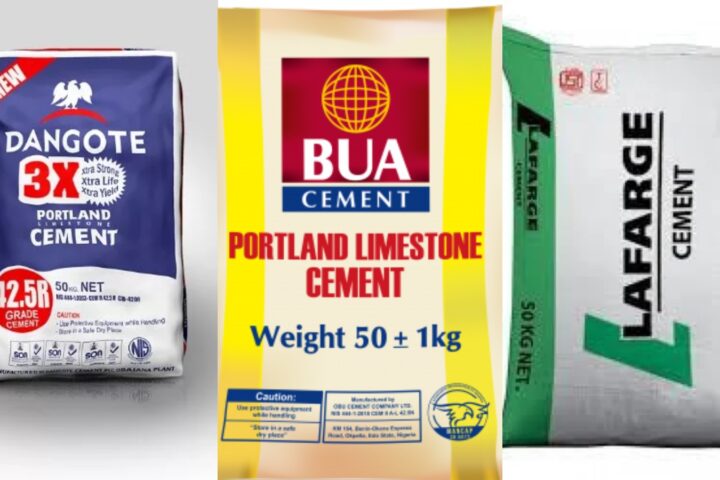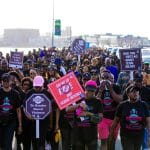Gender-based violence (GBV) – one of the highly traumatic experiences of tens of thousands of women and girls – go unnoticed and unreported. If identified and reported, the sheer scale will definitely make news and startle many.
GBV is deeply entrenched in Nigeria, yet grossly underestimated. Studies show that 30% of girls (aged between 15 and 49) have experienced one form of GBV, especially sexual violence. On average, countries lose between 1 and 2% of their GDPs to GBV. The UN recently estimated that GBV costs 2% of the global GDP, about $1.5 trillion or the size of the entire Canadian economy. To this effect, a 2020 IMF staff research notes that sub-Saharan African countries will experience a GDP gain of around 30% if GBV were to reduce to the global average of 23%.
Join our WhatsApp ChannelREAD ALSO: The Race Is On To Beat Gender-based Violence In Africa
In Nigeria, a 2018 estimate from the Ministry of Women Affairs shows that 28% of Nigerian women ages 25-29 have experienced some form of physical violence since age 15. The combination of GBV with Covid-19 and the family care burden has raised women’s stress levels to risky thresholds, robbing off negatively on their health, security, self-worth and potentials. A recent evaluation in Nigeria put the cost of each incident of violence against women at about N16, 500 (about $22). When we consider that over 80 million Nigerians (about 40% of the population) live on less than $1 a day, it becomes clearer that GBV robs many families of their meagre income.
It is this situation that has prompted the attention of Ford Foundation and other partners to support national governments in West Africa to respond positively to gender-based violence. In 2022, Ford Foundation, in partnership with African Women Journalism Project (AWJP), empowered 60 women journalists in Nigeria, Ghana and Senegal to cover stories on gender-based violence. Twelve of the participants later joined a funded fellowship, with a $150 monthly stipend to cover stories and to receive training on gender-related issues. In December of 2021, Ford Foundation announced a funding of $3.5 million for the launch of a programme called Kasa!, meaning speak out in Twi (a majority Ghanian) language. The Foundation was joined by the Open Society Initiative for West Africa in the launch of the programme with a contribution of $250 thousand, bringing the total to $3.75 million. The programme was hosted by the African Women’s Development Fund (AWDF). Kasa! was aimed at boosting awareness on sexual violence and humans rights especially pertaining to women.
READ ALSO: Ghana, Nigeria And Resource Assault In West Africa
Several other efforts by non-profit organizations has raised questions about what the Nigerian society is doing to consolidate on the gains so far made towards ending GBV. As AWJP puts it: “Ending gender-based violence and discrimination requires deeper and broader cultural, societal, and political buy-in”. The first national commitment is to recognize the urgent character of GBV and to mobilize resources to address it.
Having shown commitment to numerous national and international treaties and standards, Nigeria is obliged to fight Violence Against Women and Girls (VAWG), Sexual and Gender-Based Violence (SGBV), Harmful Practices (HP) or derogations of the Sexual and Reproductive Health and Rights (SRHR) of women and girls. It is, therefore, expected that clear-cut administrative, judicial, and budgetary steps must be taken in this regard. Experts argue that allocating money to fight social injustices makes budgeting in itself to be a human rights issue, not merely a political and economic process.
Experts are also of the view that costing GBV is a new area of research, involving the collection of disaggregated data on gender-based issues. Experience has shown that much remains to be done to achieve the UN’s Sustainable Development Goal 5.2 (to eliminate all forms of violence against women and girls). As of 2022, a UN Women report indicated that the Covid-19 pandemic have exacerbated the scourge of domestic violence in 23 of Nigeria’s 36 states. The IMF has similarly noted that the rise in the number of gender-based violence linked to lockdowns increased by more than 130%, further strengthening the saying that GBV is the ‘shadow pandemic’.
In line with this, funding or even national budgets require attention to gender because of the different opportunities of men and women in social experiences. This implies that the allocation of money to address GBV ought to pay special attention to who controls resources, the needs of men and women in healthcare and the opportunities of the two genders in allocation of resources.
A study by researchers at the Department of Mass Communication, University of Nigeria, for instance, showed that access to health information is limited by the opportunities women have as women within the framework of women’s subordinate position (to spouses) in the African cultural context.
Budgeting for health may therefore seek to specifically increase access to health information for women and girls, without necessarily making it look so since budgets are not made in respect of any gender. Yet, experts believe that given the position of women as constituting 49% of Nigeria’s population, a non-gender sensitive budget will likely fail in attempts to tackle gender-based issues such as sexual and domestic violence. It will, in fact, exacerbate injustice, discrimination, and inequality in productivity.
This has raised the expectations that countries, regardless of economic size, must ensure that they use the “maximum of available resources” to fight every form of violence against women. When this is assured, international organizations can come to the aid of a given country through grants, aid and various kinds of humanitarian assistance. Countries can call for such assistance, but they need to satisfy international aid agencies that they have done enough with disposable national resources, including all the legal avenues to enforce the rights of women.
Therefore, media reporting needs to seek out where the budgets for issues affecting women fall within the yearly cycle of the federal, state and local budgets. Audits and monitoring of budget implementation on issues related to women in previous budgets need to be tracked. This is in addition to using disease prevalence or incidences of violence against women to call for action or more budgetary allocations. This is a way to produce gender-based statistics that will help in future budgets or in future advocacy for budgets to fight gender-based violence. The appropriate ministries of women affairs can be approached for information and statistics.
As is said by Nigeria’s Centre for Social Justice, “gender statistics helps to make gender inequalities visible, which in turn informs budgeting to address identified gender gaps”.
Dr Mbamalu, a Communication scholar, Journalist and Publisher of Prime Business Africa.
Follow on X: @marcelmbamalu
















Follow Us